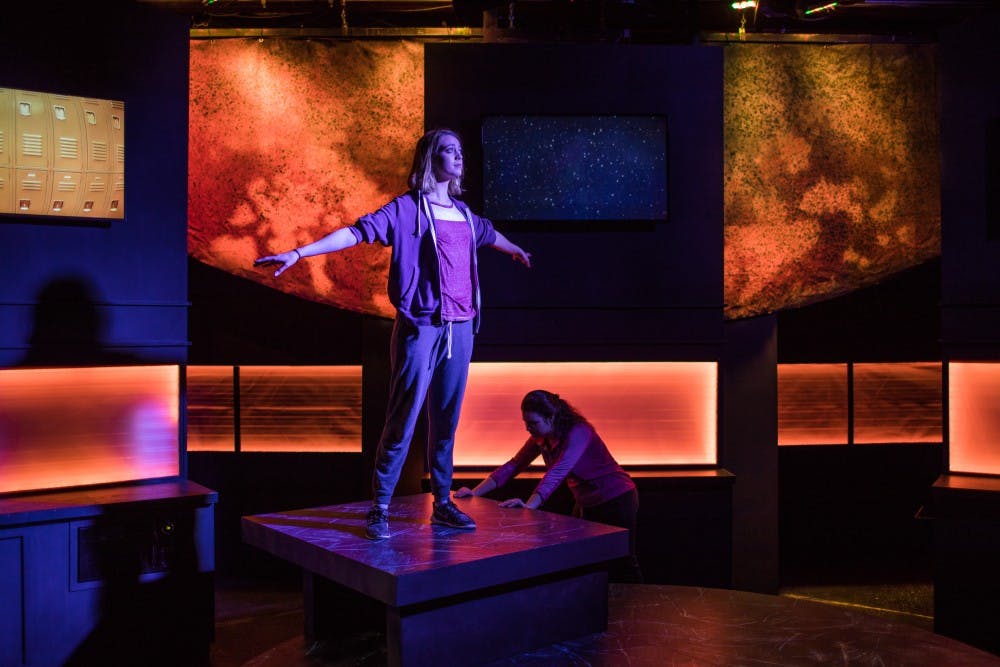“Out of Orbit” will begin this weekend at Bloomington Playwrights Project. The play, by Jennifer Maisel, is the winner of this year’s Woodward/Newman Drama Award. Winning this award allows a play to be performed at Bloomington Playwrights Project.
The play follows Sara, a scientist and mother, who is leading a team to put the Spirit and Opportunity rovers on Mars. While working on the project, Sara, though still on Earth, is operating on Mars time, while her daughter, Lis, is still on Earth time. The story follows the disconnection between mother and daughter and the challenges that come with trying to balance personal passions and family.
Jennifer Maisel, the writer of the play, began "Out of Orbit" in the early 2000's, inspired by a 2004 Los Angeles Times article regarding NASA’s Jet Propulsion Laboratory sending the rovers Spirit and Opportunity to Mars. Maisel worked on the play during the Mars mission, which was originally supposed to last 90 days.
Maisel said she faced challenges writing the play without a foreseeable ending to the mission.
“The rovers just kept going. They kept going, they kept going, they kept going. I’m like ‘I don’t know how to end this play,’” she said.
Maisel said there is a theatrical aspect of these astronauts living on Earth but functioning on Mars time. The ability to venture to another planet is a logical step in the American idea of Manifest Destiny, she said.
“Out of Orbit” was chosen out of roughly a thousand play submissions to the Bloomington Playwrights Project to win the Woodward/Newman Award, David Sheehan, director of the play, said in an email.
Readers and Bloomington Playwrights Project staff members felt it was the best new drama in the country, Sheehan said.
Maisel said a challenging part about writing the play was the need to learn and relearn science. She said she wanted to make the science aspect of the play accessible to audiences. The disconnection between Sara and Lis is a result of living on different schedules and the challenging relationship between a parent and teenager.
On a deeper level, Sheehan said for him, the play is about reaching out, both to new frontiers and to each other.
“It’s lovely to strive for greatness and to have ambition and pride, but we are none of us spinning in space alone,” he said in an email. “We have to ultimately make sense of things together.”
Sheehan said the play is relevant in the way it touches on social issues. The play deals with the growing role of women in leadership positions in science, and the struggle everyone faces of balancing personal ambitions with supporting a family.
Maisel said it's impossible to try to parent a child while working on a mission as important as this one, but ultimately, it has to be done. Sara is a single mother with no relief from anyone else, which makes it even more difficult, Maisel said.
The audience can connect with what it is to have a passion, and how to keep both your passions and family in your life, Maisel said. Whether or not you’re a Mars geek, you can connect with understanding how to love doing something so much that it becomes all-consuming, she said.
The play has an element of acceptance in it, Maisel said. This acceptance is the understanding that a child is not their parent and has their own path, just as a parent has their own path and passion.
“I think children often forget that their parents are people and want them to solely be parents," she said. "Parents often don’t know how to let their kids find their own way."




